Family want 'truth' over pigeon dropping infection
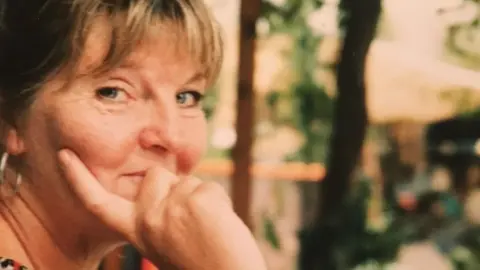 BBC
BBCThe family of a woman who died after contracting a fungal infection commonly linked to pigeon droppings say they are worried the truth will never come out.
Gail Armstrong was 73 and had been treated for blood cancer in Glasgow's Queen Elizabeth University Hospital before she died in January last year.
In the weeks before her death she had contracted a Cryptococcus infection.
Pigeon excrement at a plant room on the 12th floor in the hospital was at first thought to be the "likely source".
The health board later ruled out the plant room and an independent review, published last week, said there was "not a sound evidential basis" on which to make a link between the Cryptococcus neoformans infections and the presence of pigeon excrement at the hospital.
Cryptococcus is widely present in the environment but can be lethal to patients with compromised immune systems.
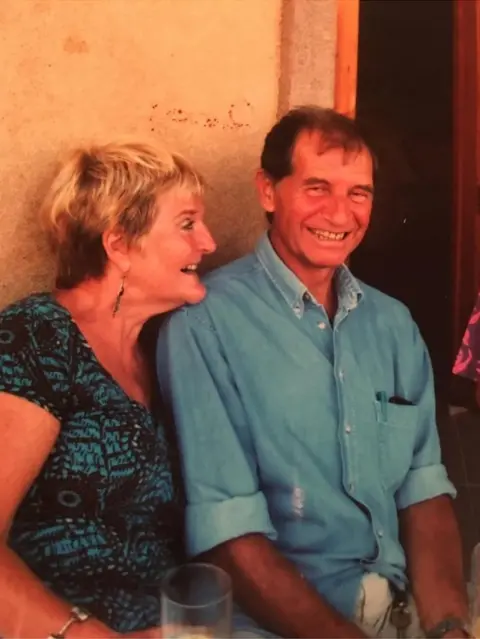

Gail Armstrong died on 7 January 2019, just weeks after the infection had been a "contributory factor" in the death of a 10-year-old boy at the hospital campus.
Gail's daughter Beth told the BBC's Disclosure programme The Secrets of Scotland's Superhospital that the family had now lost trust that Glasgow's health board would be honest and open about the cause of her death.
The family maintain that the infection was contracted in the hospital and that, although she was terminally ill with lymphoma, it hastened her death because she was unable to get the treatment she needed.
Gail, who lived in the Queen's Park area of Glasgow, was described by her family as a "caring, loving and very active" woman, with a hunger for life.
Her husband Jim Cowan said his wife had a "great spirit of adventure" and would make plans every day even after being diagnosed with cancer.
He said she was being treated for lymphoma at Scotland's £840m flagship hospital when her condition suddenly became much worse.
Her husband said the hospital could not "get to the bottom" of what her infection was but they needed to clear it before they could start chemotherapy again.
According to Gail's daughter Beth: "One day the consultant came in and said to us 'we've identified the source of the infection and it's called Cryptococcus, and it's a really nasty infection that comes from pigeons'."
Beth said the infection knocked her mum "for six".
"She really took a nosedive," Beth says. "She became very weak, lost the use of her legs, you know her brain was getting a bit scrambled."
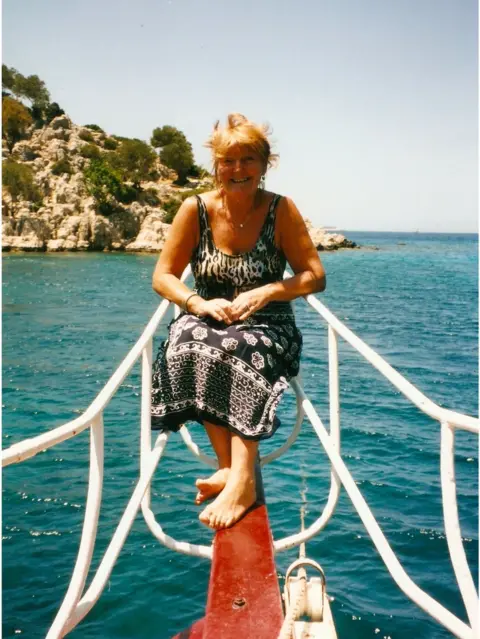

Two weeks after Gail's death, Health Secretary Jeane Freeman made a statement to parliament in which she told MSPs that Cryptococcus was not a contributory factor in her case.
She told MSPs that the 73-year-old had been discharged for palliative care and later died.
Gail's family told the Disclosure programme that the bacteria had been identified in November and she was only in palliative care for the last six days of her life in early January.
Until she contracted the infection, they said she had been expecting to start a new kind of chemotherapy to treat her cancer.
Her husband Jim said she was treated with an extremely expensive anti-fungal medication to tackle the infection so they could restart chemo.
The death of Gail and the 10-year-old, who was never identified, prompted a series of investigations into the design and build of the hospital.
The first major one to report was a review into the fabric of the building, which took almost a year-and-a-half to complete, and has just published its findings.
One of the co-authors, Dr Andrew Fraser, told the programme: "Microbiological links were not firm in making a link between the occurrence of Cryptococcus and the infections that resulted.
"There are many others sources of Cryptococcus in the environment, in wards, on visitors and patients coming in, people coming in.
"It's not for us to decide where it did come from but we do not feel there was a sound evidential basis to make the link between the building and these deaths."
But experts told the BBC it would be difficult to rule out a link with pigeons nesting in the hospital.
Epidemiologist Dr Kevin Pollock said: "The primary source of infection for Cryptococcus in individuals in the northern hemisphere is pigeon faeces.
"I think the fact that you have two cases in space and time within a month of each other in an environment where potentially you have a large amount of pigeon faeces, that's what I'd call the smoking gun hypothesis."
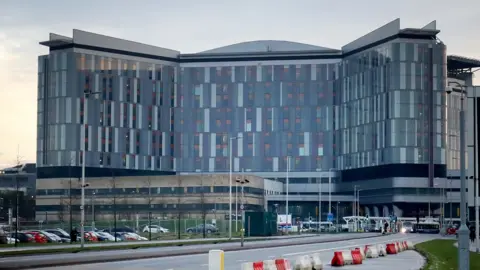 PA Media
PA MediaAndrew Streifel, who is based at the University of Minnesota Medical Centre in the US, has consulted on infection prevention and outbreaks at more than 400 hospitals around the world.
He told the programme it was very unusual for patients to contract Cryptococcus.
"Unless the patient was around the rookery or some kind of intense bird sanctuary, I wouldn't believe that anybody in a hospital would get something like that and it bothered me a lot when they say it's coincidental, that it just happens. No, it doesn't just happen," he said.
"It seems too much of a coincidence that two cases were found in the same institution but on different wards."
The Armstrong family says the latest review has added to a sense that the authorities are not being straight with them.
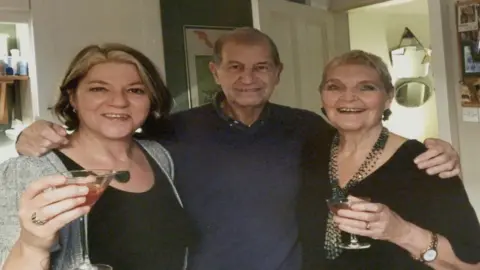
Gail's daughter Beth said: "We have less trust in the health board to be transparent and frank and honest and open. And it makes me feel worried that the truth is never really going to come out."
In a statement, NHS Greater Glasgow and Clyde said: "We are truly sorry that, following the Independent Review, families who have lost a loved one have questions remaining about the circumstances of their death.
"We have offered to meet families and remain committed to supporting them in any way we can. Our sympathies remain with the family of this lady."
Health Secretary Jeane Freeman said Court of Session judge Lord Brodie had been appointed to chair a public inquiry into the issues surrounding the hospital, which also include problems with the ventilation system and water contamination in the adjacent children's hospital.
"I can understand why families are at this point sceptical about what might come out of any inquiry or investigation," she told Disclosure.
"What I regret is that some of those answers have not been provided sooner," she said.

Previous Disclosure investigations include:
